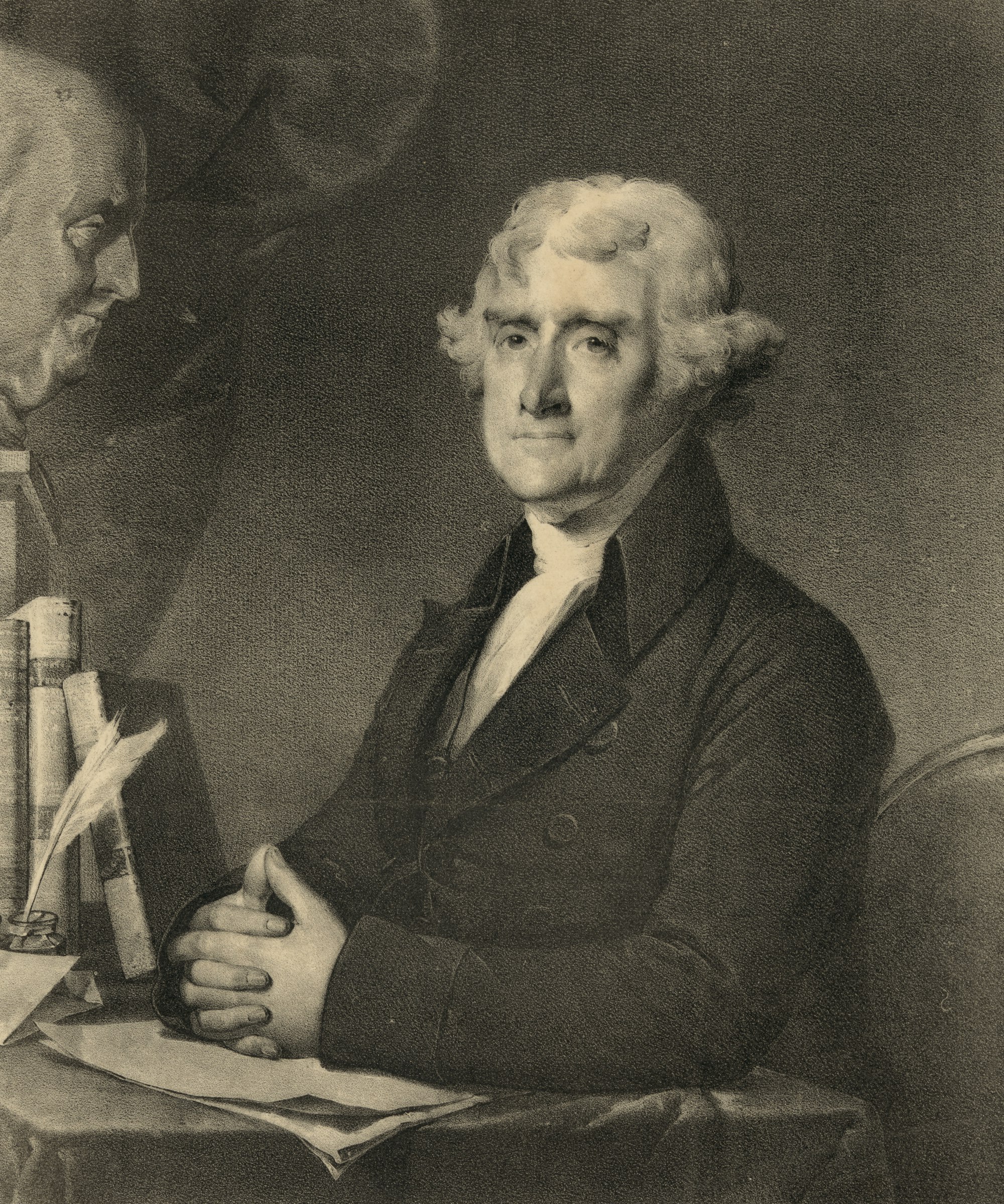The General Welfare Clause of Article I, Section 8, U.S. Constitution: Thoughts by Thomas Jefferson, 1817

On June 16, 1817, Thomas Jefferson penned a letter to Albert Gallatin addressing what he termed the "only landmark which now divides the federalists from the republicans." The landmark dealt with the interpretation of the phrase "to lay taxes, to pay the debts, and to provide for the general welfare" of the States. The Federalists took this to mean a general grant of power--ostensibly to be applied to whatever they determined was in the general welfare of the country; the Republicans (not related to the modern Republican party) interpreted to be limited to the enumerated powers, and only the enumerated powers, that followed the phrase in question.
In this passage, Jefferson exults in what he sees as the Republican interpretation.
August Glen-James, editor
Without this caution, intrigue, negotiation, and the barter of votes might become as habitual in Congress . . .
You will have learned that an act for internal improvement, after passing both Houses, was negatived by the President. The act was founded, avowedly, on the principle that the phrase in the constitution which authorizes Congress “to lay taxes, to pay the debts and provide for the general welfare,” was an extension of the powers specifically enumerated to whatever would promote the general welfare; and this, you know, was the federal doctrine. Whereas, our tenet ever was, and, indeed, it is almost the only landmark which now divides the federalists from the republicans, that Congress had not unlimited powers to provide for the general welfare, but were restrained to those specifically enumerated; and that, as it was never meant they should provide for that welfare but by the exercise of the enumerated powers, so it could not have been meant they should raise money for purposes which the enumeration did not place under their action; consequently, that the specification of powers is a limitation of the purposes for which they may raise money. I think the passage and rejection of this bill a fortunate incident. Every State will certainly concede the power; and this will be a national confirmation of the grounds of appeal to them, and will settle forever the meaning of this phrase, which, by a mere grammatical quibble, has countenanced the General Government in a claim of universal power. For in the phrase, “to lay taxes, to pay the debts and provide for the general welfare,” it is a mere question of syntax, whether the two last infinitives are governed by the first or are distinct and co-ordinate powers; a question unequivocally decided by the exact definition of powers immediately following. It is fortunate for another reason, as by requiring the federal ratio of expense in each State, or otherwise, so as to secure us against its partial exercise. Without this caution, intrigue, negotiation, and the barter of votes might become as habitual in Congress, as they are in those legislatures which have the appointment of officers, and which, with us, is called “logging,” the term of the farmers for their exchange of aid in rolling together the logs of their newly-cleared grounds.
